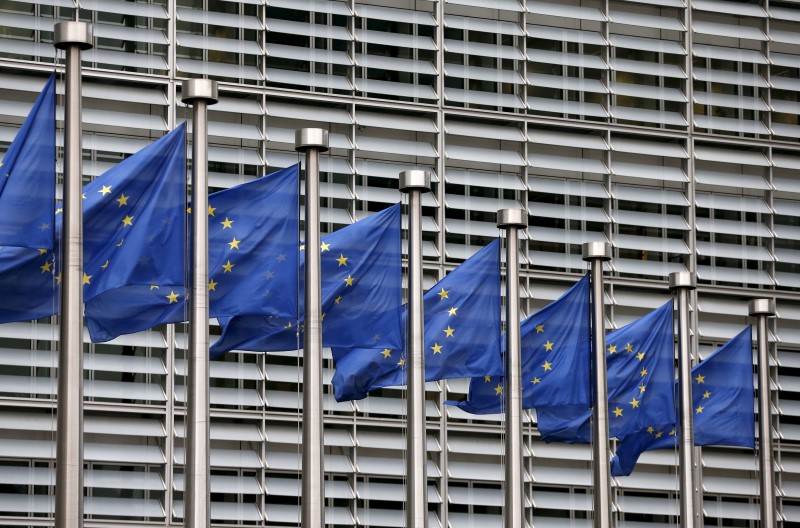By Robin Emmott
BRUSSELS (Reuters) - The European Union revived Turkey's membership bid on Monday and opened accession talks with Serbia, showing how a migration crisis and Russia's presence in the Balkans has prompted the EU to rethink plans to stop expanding.
More than a year after EU chief executive Jean-Claude Juncker said Brussels needed a pause in its policy of admitting new members, events have driven officials to revive membership talks to seek influence and stability abroad.
While neither Turkey nor Serbia are likely to join the world's largest trading bloc in the near future, the EU hopes that formal negotiations on different areas of its "chapters" or rules, will help tackle multiple crises on its borders.
"The refugee crisis and terrorism shows us that we are on the same continent, we are facing the same challenges and the more we develop common policies, the better off we will be," EU foreign policy chief Federica Mogherini told a news conference.
In July 2014, facing a popular backlash over the millions of people from formerly communist eastern EU nations streaming into western EU economies to get better-paid work, Juncker promised "no new enlargement in the next five years".
But failing states, war, Islamist militancy and a refugee crisis in the EU's neighbourhood have showed the value of trying to engage and push countries towards becoming market economies.
Underlying that change in mood is Turkey's promise to help stem the flow of migrants from its territory to Europe in return for cash, visas and renewed talks on joining the EU, with which Ankara formally started its membership talks a decade ago.
"The sense of direction is this: rather than having an ideological debate about enlargement tomorrow or no enlargement, take the concrete steps to bring us closer," Mogherini said.
That was echoed by other EU officials as they opened the first enlargement chapter with Turkey since 2013 - on economic and monetary affairs - just two weeks after the first EU-Turkey summit in many years and where EU leaders called for membership talks to be "re-energised".
PROBLEMS AHEAD
Still, big obstacles remain for Turkey, a populous Muslim nation that some EU members say will never join the bloc.
While Turkish Deputy Prime Minister Mehmet Simsek promised swift progress on the economic chapter, dealing with human rights and rule-of-law issues will be much more problematic.
In its latest report on Turkey last month, the European Commission urged Ankara to lift restrictions on media freedom, respect human rights and stop interfering in the judiciary.
Of concern to the Commission, which helps EU governments decide who to let into the bloc, is the growing power of Turkish President Tayyip Erdogan, who many regard as authoritarian.
In total, 15 out of the EU's 35 chapters have now been opened with Turkey and one has been provisionally closed, but membership still faces resistance from France, Germany and particularly divided Cyprus, where Turkey controls the north.
But as a new pragmatism shapes EU foreign policy, Brussels also displayed more willingness to Serbia, opening two accession chapters, despite the limited implementation of Belgrade's agreements with its former province Kosovo.
One of the chapters will focus on relations with Kosovo, which broke away during a war in 1999 and declared independence in 2008. Serbia does not recognise its former southern province as sovereign, but has struck a series of deals brokered by the EU to try to regulate relations between the two.

"We're not here just to toy with Serbia," Luxembourg Foreign Minister Jean Asselborn told reporters. The EU, he said, is serious about a rapprochement with Belgrade, even if there are concerns about its close relationship with Russia and over the difficulties of resolving disputes over the status of Kosovo.